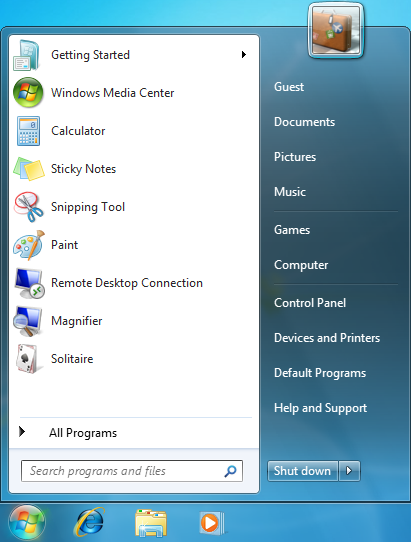These are the top ten most read articles on FOSS Force during the month of January: 1. Firefox OS: The Return of Microsoft’s Netscape Fears…
Posts tagged as “Mobile”
Today it was announced that Google is selling handset maker Motorola Mobility to Lenovo for $2.91 billion. The move comes less than a week after the Chinese electronics company also agreed to acquire IBM’s low-end server business for $2.3 billion. Google purchased Motorola Mobility for $12.5 billion in 2012.
Although the move is not necessarily a surprise, it is somewhat unexpected.
When Google purchased the consumer electronics end of Motorola, media pundits were quick to point out that the search company was primarily interested in attaining Motorola’s valuable patent portfolio. At the time, Google’s patent holdings were somewhere between slim to none and they desperately needed patents to defend themselves against legal actions, as Android had become a magnet for attracting patent trolls. Since then, Google has been actively adding patents to their portfolio.
Christine Hall has been a journalist since 1971. In 2001, she began writing a weekly consumer computer column and started covering Linux and FOSS in 2002 after making the switch to GNU/Linux. Follow her on Twitter: @BrideOfLinux
FOSS Week in Review
India drops deal with Google over spying fears
Since the Snowden leaks revealed that Microsoft has allegedly built back doors into Windows for the NSA, we’ve been saying that the spy agency’s actions are going to hurt the U.S. tech industry’s business abroad. Well, it’s started to happen. On Thursday, Reuters reported that India has decided to drop out of a planned partnership with Google designed to help voters access information.
“…the plan was opposed by the Indian Infosec Consortium, a government and private sector-backed alliance of cyber security experts, who feared Google would collaborate with “American agencies” for espionage purposes.”
 There’s even been more digital security news from the EU, where there’s been a scramble to address privacy and security issues since the NSA scandal began. On January 3, phoneArena.com reported that European phone makers have been coming out with pricey phones designed for the security conscious.
There’s even been more digital security news from the EU, where there’s been a scramble to address privacy and security issues since the NSA scandal began. On January 3, phoneArena.com reported that European phone makers have been coming out with pricey phones designed for the security conscious.
Mark our words. This is only the beginning.
Once upon a time there was a browser called Netscape…
Back in the days before the release of Windows 95, just as the public was discovering the Internet as an alternative to private networks such as Prodigy and CompuServe, Netscape was the bomb. In those days, Microsoft didn’t supply any method for surfing the Internet, so people visited their local Egghead store, or other software outlets, to buy a shrink wrapped version of Netscape on floppy disks, which opened up a whole new world to computer users.
Christine Hall has been a journalist since 1971. In 2001, she began writing a weekly consumer computer column and started covering Linux and FOSS in 2002 after making the switch to GNU/Linux. Follow her on Twitter: @BrideOfLinux
Two articles caught my attention this week and both of them came from The Verge. Both stories came out within 2 days of each other. In that they both dealt with Microsoft talking about or actually reversing previous decisions about Windows 8, I had to wonder if this was Microsoft damage control at work. It would seem so.
It’s not just me. A lot of my friends in IT think the Windows 8 release was a disaster. Microsoft was seen as telling the computing public, “You will accept our new Windows and you will like it.”
Uh, no they won’t.
Early sales figures were far more than disappointing for the folks at Redmond. So disappointing in fact, that the company made public at least some intentions of making amends to their customers.
Ken Starks is the founder of the Helios Project and Reglue, which for 20 years provided refurbished older computers running Linux to disadvantaged school kids, as well as providing digital help for senior citizens, in the Austin, Texas area. He was a columnist for FOSS Force from 2013-2016, and remains part of our family. Follow him on Twitter: @Reglue
Now that the celebrating is out of the way, I thought it might be time to take a look at some of the stories we covered on FOSS Force this year.
1. The NSA. The biggest story to come down the wire this year undoubtedly had to do with Edward Snowden’s revelations about the National Security Agency’s bag of dirty tricks. Even those of us who have long understood that the Internet isn’t necessarily a place to expect privacy were surprised at how deeply the NSA has managed to reach into the Internet. Odds are, if you’ve been using social networks, everything you’ve posted is now on file with the NSA. What’s worse, every email you’ve sent probably has a copy resting on a NSA server somewhere.
Christine Hall has been a journalist since 1971. In 2001, she began writing a weekly consumer computer column and started covering Linux and FOSS in 2002 after making the switch to GNU/Linux. Follow her on Twitter: @BrideOfLinux
Am I the only one who’s been having a bit of SCO déjà vu when it comes to Rockstar’s suit against Google and a bevy of Android handset makers?
You remember SCO, don’t you? They’re the company, once a major Linux player with the Caldera distro, that bought the rights to Unix then turned around and sued IBM for $1 billion, claiming that Big Blue had been copying Unix code into Linux. They’re also the company that sued two of their former clients, AutoZone and Daimler Chrysler, for moving to Linux. Trouble was, they had nothing, not even the copyrights to the code they claimed had been infringed.
 There’s plenty about Rockstar vs Everybody Android to remind me of the SCO fiasco. Enough so to make me wish we still had PJ and Groklaw to take care of the play-by-play. Last week, Google returned fire. Wouldn’t it be nice to have PJ’s take on this?
There’s plenty about Rockstar vs Everybody Android to remind me of the SCO fiasco. Enough so to make me wish we still had PJ and Groklaw to take care of the play-by-play. Last week, Google returned fire. Wouldn’t it be nice to have PJ’s take on this?
Christine Hall has been a journalist since 1971. In 2001, she began writing a weekly consumer computer column and started covering Linux and FOSS in 2002 after making the switch to GNU/Linux. Follow her on Twitter: @BrideOfLinux
FOSS Week in Review
FreeBSD rethinks encryption after Snowden leaks
Only three months after the Snowden leaks on NSA snooping began, we learn from Ars Technica that the developers at FreeBSD have decided to rethink the way they access random numbers to generate cryptographic keys. Starting with version 10.0, users of the operating system will no longer be relying solely on random numbers generated by Intel and Via Technologies processors. This comes as a response to reports that government spooks can successfully open some encryption schemes.
The Magicstick Mobile Charger is a handy little device for keeping a smartphone charged and ready when away from a power source. However, some might…
FOSS Week in Review
Swiss cloud with, presumably, no holes
Back when the Edward Snowden brouhaha first began, we said that this was going to have serious repercussions on the tech sector here in the United States, especially after it became evident that Microsoft was actively working with the spooks by allegedly designing back doors into their operating system and keeping federal intelligence agents informed about unpatched security holes that could be used against foreign governments and “terrorist,” which now days seems to be everyone who doesn’t work for the NSA, FBI or CIA.
 Brazil is already spending big bucks in an effort to make sure that no Internet cable entering their country goes anywhere near the US of A and is working to pass laws to make sure all Brazilian businesses use only servers located in-country. Similar efforts are underway in Europe, most notably in France and Germany.
Brazil is already spending big bucks in an effort to make sure that no Internet cable entering their country goes anywhere near the US of A and is working to pass laws to make sure all Brazilian businesses use only servers located in-country. Similar efforts are underway in Europe, most notably in France and Germany.
Now the frugal Swiss are jumping on board, and they rightfully intend to profit from our stupidity by taking advantage of their strong privacy laws.









